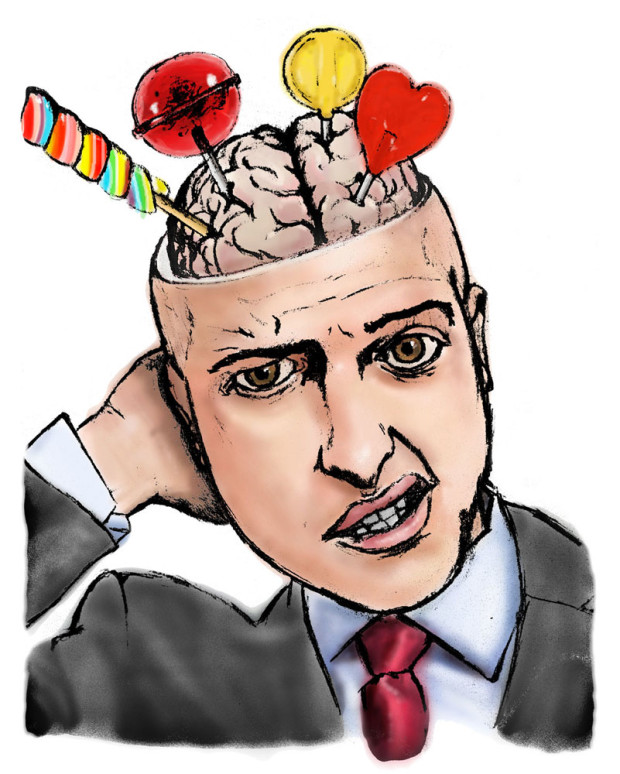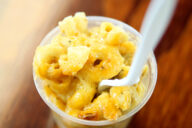Article by Tristan Newman
Illustration by Fitz
With today’s flood of information and tantalizing marketing, it’s pretty difficult to navigate our way through what is good and bad for our bodies. Most importantly, it’s not at all sexy to read scientific journals and studies that give us the cold facts, thus we read well crafted blogs and facebook statuses by wordsmith’s like myself. I would like to smith you some findings from articles in an as sexy as I can make it article about sugar!
Disclaimer: I am not a doctor, I just read what they write and summarize it in what works for me. Please consult you physician before following any medical advice, which, this is not.
Why did we have these sugar behaviors? Indeed our gene’s are old as balls, our world was first, we adapted to it, we adapted well enough to survive, and then thrive. Things that naturally have sugar back in the primordial day, were scarce, nutrient dense, and calorie intensive. It was fantastic that we wanted to pound down fruit all the time! That behavior contributed to our energy, nutrients, and actions to forage for it. Not only that, but most fruit is aesthetically sexy! Things that are naturally gorgeous and colorful aren’t usually poisonous, put them in your mouth.
So, we wanted this stuff, why? In the pubmed journal cited there is evidence that sugar is addictive. It’s the dopamine that is massaging your brain’s reward sensors or the opiate like effect making your pain receptors fearless. Another cause of these sugar cravings have been linked to sleep deprivation, dehydration, stress, other of metabolic deficiencies. Unfortunately, the only thing we think is “EAT”, take a look around, what’s our most abundant modern food source, carbs and sugar! What’s more the most modernly abundant source of sugar, high fructose corn syrup induces leptin resistance, thus reduced appetite regulation and a one way ticket to binge town.
Now, now, it’s okay, we’ve only put it in our mouths thus far. What all goes on inside after we’ve done it for a bit? Some generalizations, but highly correlative results as sited in campaigns like “sugarcouteddoc.com” and “That Sugar Film” are type 2 diabetes, cardio vascular disease, obesity, reduced cognitive function, boiling bank accounts, cancer, reduced insulin sensitivity, reduced appetite regulation, and the unfortunate cascade of abundant and physiologically induced addiction.
What can we do? The common themes here are abundance, psychological cause effect, and experience based knowledge. These obstacles are the way. Abundance can be controlled by controlling your pantry, grocer, restaurant; psychology by splurge planning, community, animal brain awareness; and knowledge by pubmed, self experimentation, feedback.
Sweets can be a wonderful part of life, but being knowledgeable is pivotal to health. For everything that each individual could improve about the world the greatest travesty is to reduce your time on this planet and being the “beautiful little fool.”.
———-
Sources:
http://www.sciencedirect.com/science/article/pii/S0149763407000589
http://ajpregu.physiology.org/content/early/2008/08/13/ajpregu.00195.2008







No Comments